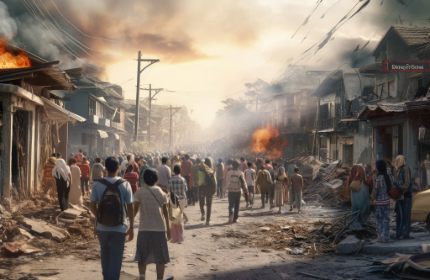Healthcare Heroes: Improving Access to Medical Care for Children
Healthcare Heroes: Improving Access to Medical Care for Children
The Importance of Healthcare Heroes in Improving Access to Medical Care for Children
Access to medical care is a fundamental right for every child, yet millions around the world still lack proper healthcare services. Healthcare heroes play a crucial role in bridging this gap and ensuring that children receive the medical care they need. These heroes, including doctors, nurses, and other healthcare professionals, dedicate their lives to improving the health outcomes of children, often in challenging and underserved communities.
One of the primary reasons healthcare heroes are essential in improving access to medical care for children is their expertise and specialized knowledge. Children have unique healthcare needs that require specialized care, and healthcare heroes are trained to address these needs effectively. From diagnosing and treating childhood illnesses to providing preventive care and vaccinations, these heroes are equipped with the skills and knowledge to ensure children receive the best possible care.
Furthermore, healthcare heroes act as advocates for children’s health, ensuring that their voices are heard and their needs are met. They work tirelessly to raise awareness about the importance of children’s health and advocate for policies and programs that improve access to medical care. By speaking up for children’s health, healthcare heroes play a vital role in shaping healthcare systems and policies to prioritize the well-being of children.
Challenges Faced by Healthcare Heroes in Providing Medical Care for Children
While healthcare heroes are dedicated to improving access to medical care for children, they face numerous challenges in their mission. One significant challenge is the lack of resources and infrastructure in underserved communities. Many healthcare facilities in these areas lack essential medical equipment, medications, and even basic amenities like clean water and electricity. Healthcare heroes often have to work with limited resources, making it difficult to provide comprehensive care to children.
Another challenge faced by healthcare heroes is the shortage of healthcare professionals, particularly in rural and remote areas. The demand for healthcare services for children often exceeds the available workforce, leading to long waiting times and limited access to care. This shortage of healthcare professionals can also result in burnout among those on the frontlines, as they are constantly overwhelmed with the number of patients they need to attend to.
Innovative Solutions by Healthcare Heroes to Enhance Access to Medical Care for Children
Despite the challenges they face, healthcare heroes have shown remarkable resilience and creativity in finding innovative solutions to enhance access to medical care for children. Telemedicine has emerged as a powerful tool in reaching children in remote areas. Healthcare heroes can now provide virtual consultations, diagnose illnesses, and even monitor chronic conditions through video calls and remote monitoring devices. This technology has revolutionized access to care, particularly for children who previously had limited or no access to healthcare services.
Additionally, healthcare heroes have embraced community-based healthcare models to improve access to medical care for children. By setting up mobile clinics and community health centers, healthcare professionals can bring medical services directly to underserved communities. These initiatives not only provide convenient access to care but also help build trust and rapport with the community, ensuring that children receive ongoing healthcare support.
The Impact of Healthcare Heroes in Improving Health Outcomes for Children
The impact of healthcare heroes in improving health outcomes for children cannot be overstated. Their dedication and expertise have led to significant improvements in child health globally. For instance, according to UNICEF, the under-five mortality rate has declined by 59% since 1990, largely due to the efforts of healthcare heroes in providing essential healthcare services to children.
Moreover, healthcare heroes play a crucial role in preventing and managing childhood diseases. Through vaccination campaigns, they have successfully eradicated or significantly reduced the prevalence of diseases such as polio, measles, and diphtheria. By ensuring children receive timely vaccinations, healthcare heroes protect them from life-threatening illnesses and contribute to the overall well-being of communities.
In conclusion, healthcare heroes are instrumental in improving access to medical care for children. Their expertise, advocacy, and innovative solutions have a profound impact on the health outcomes of children worldwide. Despite the challenges they face, healthcare heroes continue to work tirelessly to ensure that every child has access to the medical care they need. Their dedication and commitment make them true heroes in the fight for children’s health.




